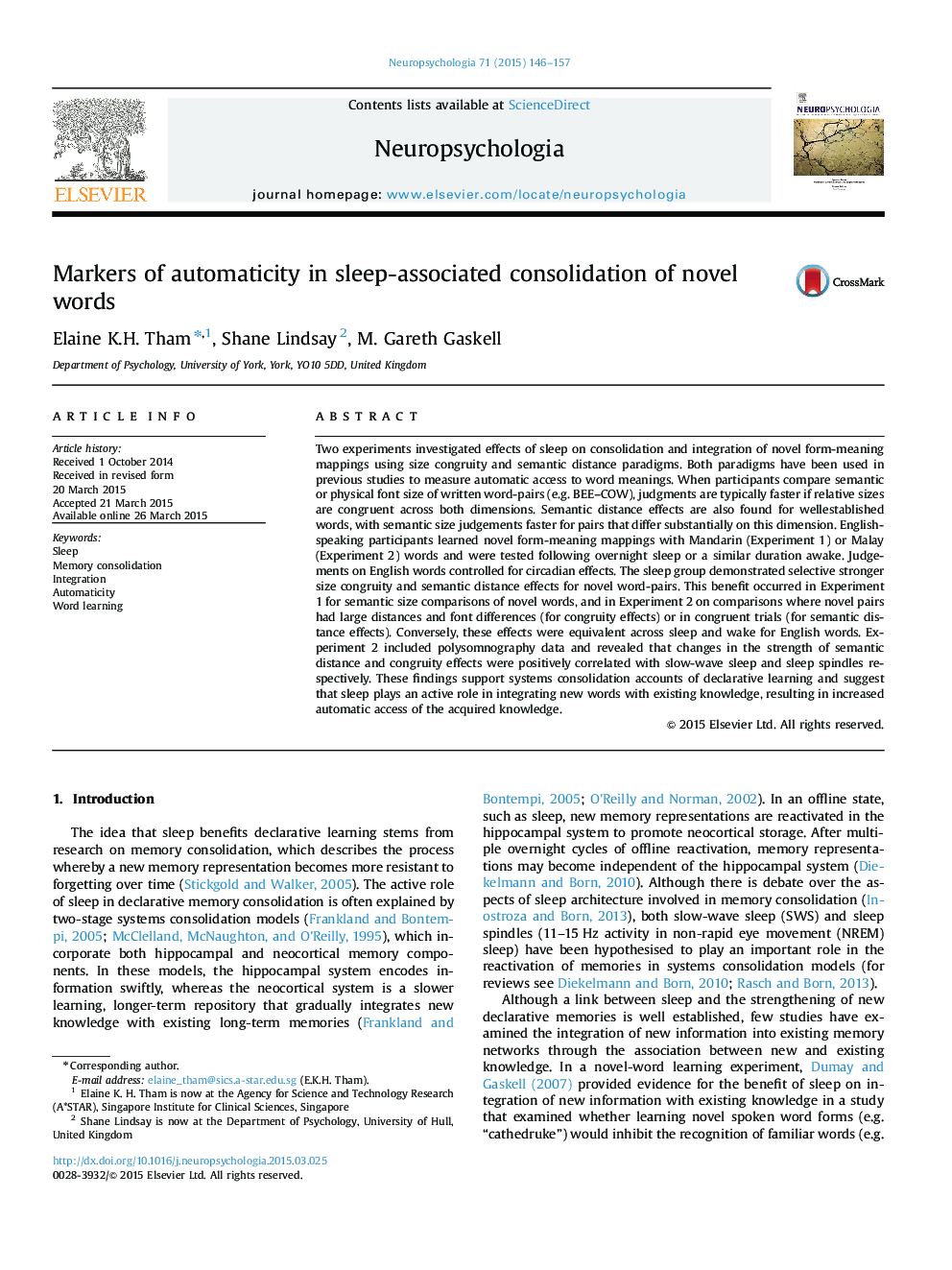| Article ID | Journal | Published Year | Pages | File Type |
|---|---|---|---|---|
| 7320253 | Neuropsychologia | 2015 | 12 Pages |
Abstract
Two experiments investigated effects of sleep on consolidation and integration of novel form-meaning mappings using size congruity and semantic distance paradigms. Both paradigms have been used in previous studies to measure automatic access to word meanings. When participants compare semantic or physical font size of written word-pairs (e.g. BEE-COW), judgments are typically faster if relative sizes are congruent across both dimensions. Semantic distance effects are also found for wellestablished words, with semantic size judgements faster for pairs that differ substantially on this dimension. English-speaking participants learned novel form-meaning mappings with Mandarin (Experiment 1) or Malay (Experiment 2) words and were tested following overnight sleep or a similar duration awake. Judgements on English words controlled for circadian effects. The sleep group demonstrated selective stronger size congruity and semantic distance effects for novel word-pairs. This benefit occurred in Experiment 1 for semantic size comparisons of novel words, and in Experiment 2 on comparisons where novel pairs had large distances and font differences (for congruity effects) or in congruent trials (for semantic distance effects). Conversely, these effects were equivalent across sleep and wake for English words. Experiment 2 included polysomnography data and revealed that changes in the strength of semantic distance and congruity effects were positively correlated with slow-wave sleep and sleep spindles respectively. These findings support systems consolidation accounts of declarative learning and suggest that sleep plays an active role in integrating new words with existing knowledge, resulting in increased automatic access of the acquired knowledge.
Related Topics
Life Sciences
Neuroscience
Behavioral Neuroscience
Authors
Elaine K.H. Tham, Shane Lindsay, M. Gareth Gaskell,
